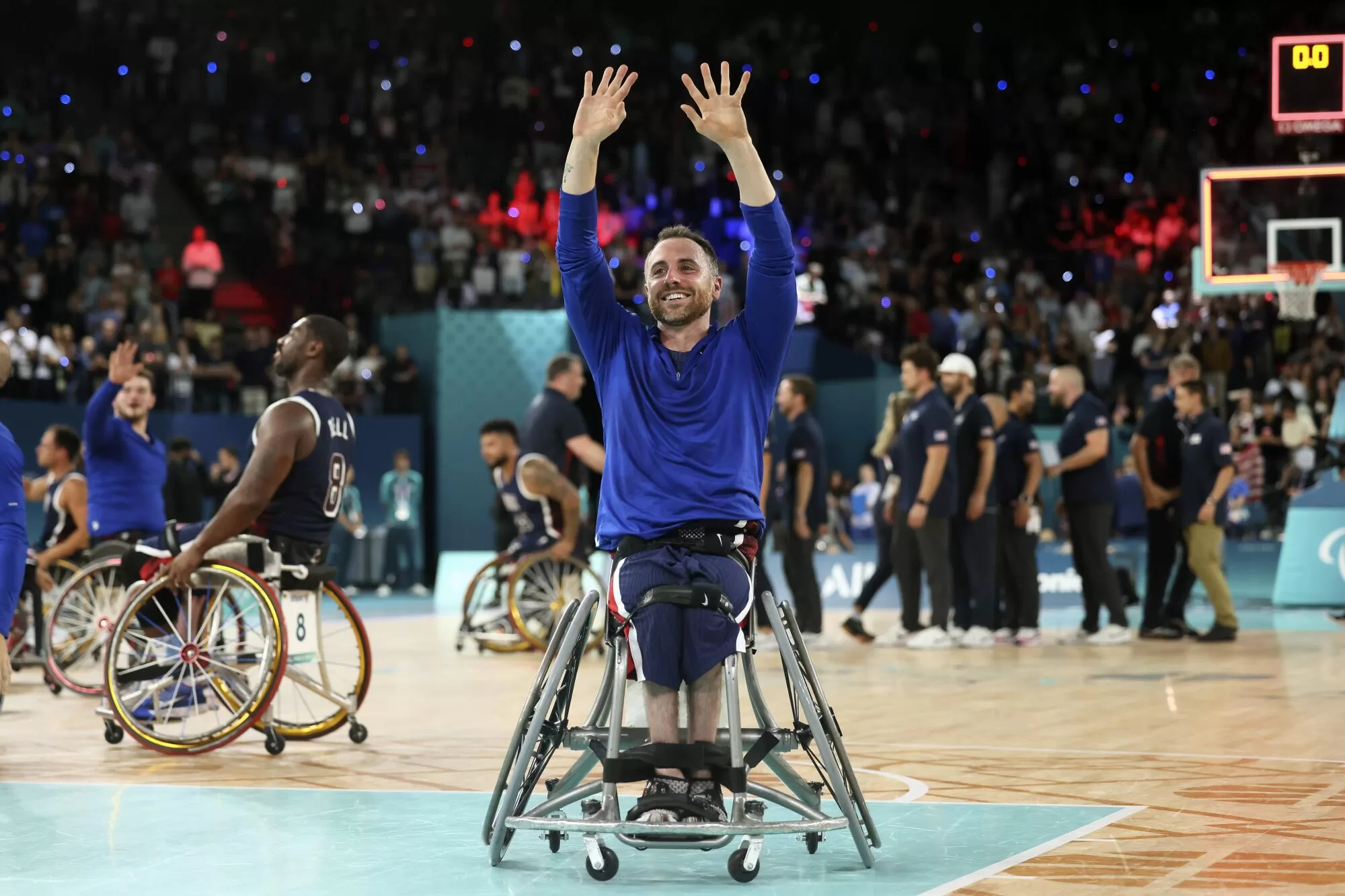As a breakout star at the 2024 Paralympics, Ezra Frech was thrilled about winning gold medals in the 100 meters and high jump, but the Los Angeles teenager was also hoping for a bigger sort of victory.
Large crowds and record television coverage have him feeling good about the last two weeks in Paris. It has him thinking about 2028 when the Games come to his hometown.
“This is a special opportunity for Paralympic sport,” he said. “I look forward to riding this momentum into L.A.”
Other para athletes and officials share his sense of optimism. After decades of fighting for attention, they feel poised to emerge from the shadow of their older, more-glamorous sister, the Summer Olympics.
As Frech put it: “I feel like the Paralympics right now are where the women’s sports movement was maybe 15 years ago. We’re getting close to mainstream.”
The onus now falls on LA28 organizers to continue building on what Paris has achieved. An International Paralympic Committee executive sounded bullish.
“We want to conquer America,” spokesman Craig Spence said. “It is as simple as that.”
The last decade or so has seen the movement taking a few steps back from the 2012 London Paralympics, regarded as the most-successful ever. Numbers from Paris suggest a rebound.
More than 1,450 hours of live coverage had been made available to 225 media companies that obtained rights to these Games. The IPC predicts its worldwide audience will surpass 4.1 billion.
In the U.S., NBCUniversal has offered 140 hours of coverage on its various channels and 1,500 streaming hours on Peacock. Through the first six days, the NBC network reported an average of 1.32 million viewers, a 49% increase versus Tokyo three years ago.
Attendance in Paris has been just as encouraging, with ticket sales surpassing 2.4 million heading into the final weekend. Athletes have sounded almost giddy.
“It’s really crazy,” said Hannah Moore, a British paratriathlete. “Not like anything I’ve ever experienced before, just too many people just screaming for you.”
Steve Serio celebrates after winning gold with the U.S. men’s wheelchair basketball team at the Paris Paralympics on Saturday.
(Thomas Padilla / Associated Press)
Still, there is much work to do before 2028.
A recent Congressional report titled “Passing the Torch” recommended that the U.S. Olympic & Paralympic Committee use its influence — this country pours billions into the two movements — to pressure broadcasters for more coverage.
Evan Medell of the U.S., a bronze medalist in taekwondo, wants sports federations to throw more marketing weight behind his and other sports.
“Even within our taekwondo community,” he said, “people don’t even know para is part of it.”
Athletes know they must carry some of the load. It’s no longer enough to train and win medals, said U.S. swimmer Jamal Hill, who sees a need for athletes to promote themselves through social media and other avenues.
Frech has become a face of the Paralympic movement by doing frequent interviews, walking the runway in fashion shows and growing his social media following to more than a half-million. He says: “It comes from us athletes, building our own stories, building our own brands, creating our own storytelling, right?”
The hope is that para sports can reach an inflection point similar to what women’s basketball is now experiencing with the popularity of Caitlin Clark.
A crossover star “changes everything,” said Justin Phongsavanh, a U.S. javelin thrower. “Now we’ve got more viewership, now we have more money and more fans. We have all of these things because we had a trailblazer.”
Though L.A. has hosted the Olympics twice before, this will be the first time since the inception of the Paralympics in 1988.
Much of the Paralympics’ success will hinge on the amount of coverage and advertising NBC is willing to devote. Closer to home, marketing will be essential to driving ticket sales.
“The Paralympic Games do not have the awareness or the profile in the U.S. as they do in Europe,” Spence said. “My advice is to spend the next two years educating the audience on what to expect … on why we are so special.”
So far, LA28 has made history as the first organizing committee to add a new sport — para climbing — to the official program. It remains to be seen if the Paralympics, like the Olympics a few weeks earlier, will stage events in major venues such as SoFi Stadium and the Intuit Dome.
LA28 Chief Executive Reynold Hoover envisions something more than just sport, calling the Games “an exceptional opportunity to celebrate people living with disabilities.” He added that “when 4,400 Paralympians come to L.A. to chase their wildest dreams — we’ll be ready for them.”
City officials have also been involved with Mayor Karen Bass leading a contingent to Paris to observe accessibility in the athlete’s village and at venues.
For all his optimism, Frech understands the challenge ahead.
With family and friends, he helped establish Angel City Sports, a local nonprofit that provides adaptive sports clinics, classes and competitions. He will also be part of LA28’s handover presentation at Sunday’s closing ceremony.
“We’re battling a lot of things, it’s an uphill battle,” he said of the next four years. “I’m prepared to do everything in my power to make it happen in L.A.”
